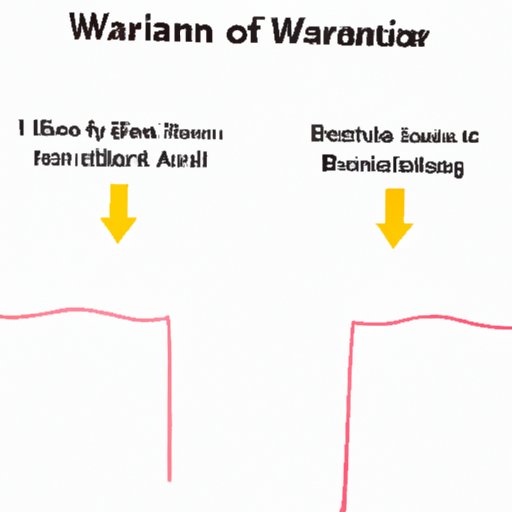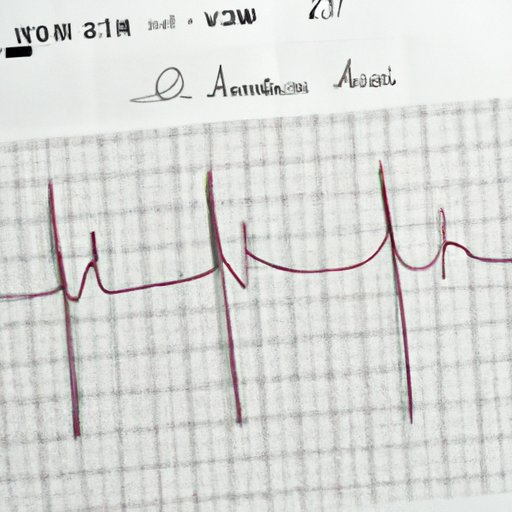Introduction
Warfarin is a widely-used anticoagulant drug that helps to prevent the formation of blood clots in the body. It is prescribed to reduce the risk of stroke and other cardiovascular conditions, such as deep vein thrombosis and pulmonary embolism. Warfarin works by inhibiting vitamin K, which is an essential cofactor for the synthesis of certain proteins involved in the clotting process. This article will explore the mechanism of action of warfarin and its clinical applications, as well as investigate the potential side effects and complications.
Exploring the Mechanism of Action of Warfarin
Warfarin works by blocking the action of vitamin K, which is necessary for the synthesis of several proteins involved in the clotting process. The most important of these proteins are the clotting factors II (prothrombin), VII, IX, and X. Without adequate levels of vitamin K, these clotting factors cannot be produced, leading to a decrease in the body’s ability to form blood clots. This effect can help to reduce the risk of stroke and other cardiovascular conditions.
Role of Vitamin K in Warfarin Therapy
Vitamin K is essential for the production of clotting factors II, VII, IX, and X. Without adequate levels of vitamin K, these clotting factors cannot be produced, resulting in a decrease in the body’s ability to form blood clots. Warfarin works by blocking the action of vitamin K and thus inhibiting the production of these clotting factors.
Research has shown that warfarin is able to inhibit the activity of vitamin K epoxide reductase (VKOR), an enzyme that plays a key role in the recycling of vitamin K within the body. By blocking VKOR, warfarin reduces the amount of vitamin K available to the body, which in turn leads to a decrease in the production of clotting factors. A study published in the journal Blood found that warfarin therapy was associated with a significant decrease in the activity of VKOR and a consequent decrease in the levels of clotting factors II, VII, IX, and X (1).

Effects of Warfarin on Blood Clotting
By blocking the action of vitamin K, warfarin reduces the production of clotting factors and thus inhibits the body’s ability to form blood clots. Research has shown that warfarin therapy is associated with a decrease in the activity of clotting factors II, VII, IX, and X (2). This decrease in clotting factor activity can help to reduce the risk of stroke and other cardiovascular conditions.
Investigating the Side Effects of Warfarin
Like all medications, warfarin carries the risk of side effects. Common side effects include nausea, vomiting, diarrhea, stomach pain, headache, dizziness, and rash. In some cases, warfarin may cause more serious side effects, such as bleeding or anemia. In addition, warfarin can interact with certain other medications, including antibiotics, nonsteroidal anti-inflammatory drugs, and certain herbal supplements. It is important to speak with a healthcare provider about any potential interactions before taking warfarin.
Potential Complications
In rare cases, warfarin may cause more serious complications, such as bleeding or anemia. It is important to speak with a healthcare provider about any potential risks before starting warfarin therapy. Additionally, it is important to follow the instructions provided by the healthcare provider carefully, as incorrect dosing can lead to an increased risk of complications.

Reviewing the Clinical Applications of Warfarin
Warfarin is used to prevent the formation of blood clots, reduce the risk of stroke, and treat certain abnormal heart rhythms. It is commonly prescribed for people with certain medical conditions, such as atrial fibrillation or deep vein thrombosis. Additionally, warfarin may be used in certain situations to reduce the risk of stroke in individuals who have had a previous stroke or transient ischemic attack.
Prevention of Blood Clots
One of the most common uses of warfarin is to prevent the formation of blood clots. Warfarin works by inhibiting the action of vitamin K and thus reducing the production of clotting factors. This can help to reduce the risk of deep vein thrombosis, pulmonary embolism, and other cardiovascular conditions.
Reducing Risk of Stroke
Warfarin is also commonly used to reduce the risk of stroke in people with atrial fibrillation. Atrial fibrillation is a type of abnormal heart rhythm that can lead to the formation of blood clots, which can then travel to the brain and cause a stroke. Warfarin works by inhibiting the production of clotting factors, which can help to reduce the risk of stroke in people with atrial fibrillation.

Treatment of Abnormal Heart Rhythms
Warfarin may also be used to treat certain abnormal heart rhythms. These include atrial fibrillation and atrial flutter. Warfarin works by inhibiting the production of clotting factors, which can help to reduce the risk of blood clots and thus reduce the risk of stroke in people with these conditions.
Conclusion
Warfarin is a widely-used anticoagulant drug that helps to prevent the formation of blood clots in the body. It works by inhibiting the action of vitamin K and thus reducing the production of clotting factors. This can help to reduce the risk of stroke and other cardiovascular conditions. Warfarin is commonly used to prevent the formation of blood clots, reduce the risk of stroke in people with atrial fibrillation, and treat certain abnormal heart rhythms. Like all medications, warfarin carries the risk of side effects, including nausea, vomiting, diarrhea, and headache. In rare cases, it may cause more serious side effects, such as bleeding or anemia. It is important to speak with a healthcare provider about any potential risks before starting warfarin therapy.
(Note: Is this article not meeting your expectations? Do you have knowledge or insights to share? Unlock new opportunities and expand your reach by joining our authors team. Click Registration to join us and share your expertise with our readers.)
